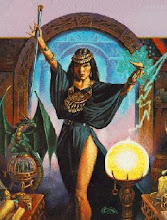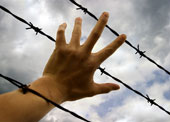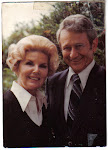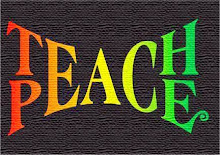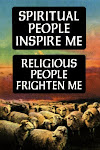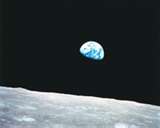 Well I can't keep pretending I don't notice the decorations on the traffic lights and the chubby Santas leering at me from every store window. Want to discuss a bit about the history of this season? Good!
A friend chastised me saying there'd be no Christmas without Christ. I beg to remind her of the thousands of years B.C. ("before Christ") man has celebrated the Winter Solstice, and in many a differing tradition. By any other name, a time of celebration and worship. But so many other celebrations take place this time of year, some became mixed up, mingled and now people become confused. Read on!
As families gather round the mummified tree with gifts asunder, merriment galore, sooner or later someone will whisper:
"Let's not forget what this day is really about!"
And with duly bowed heads, we meditate on the birth of a babe who, some believe, grew up and changed the world. He had alot of unusual ideas (like loving your worst nightmare of an enemy) Very evolved guy. Made alot of powerful folks angry. But it's also time for other celebrations mankind has kept through time - like Saturnalia. Or Mistlemas. Or Dies Natalis Invicti Solis (Birth of the Unconquered Sun). And others. All in keeping with our wondrous, beautiful pagan rituals of renewal.
Would you like more information about these holidays? Good!
We celebrate many things during this time of year. We have for millennia.
I'd like to offer that man has celebrated the Winter Solstice for ages unrecorded. Every country celebrates differently, and going back into history I'll just use one little example, the ancient Roman holiday of the Sun, "Saturnalia", also celebrated at this time. We still celebrate the Winter Solstice on the 22nd, the longest night of the year - the shortest day. With the sun at lowest, it's the turning point of the year. The Romans called it Dies Natalis Invicti Solis or "The Birthday of the Unconquered Sun." For many a modern year we've called it "The Birthday of the Son of God." Whatever his Aramaic name really was, I believe he existed, was raised to be a good obedient Jew, yet was a radical thinker and troublemaker for the high Rabbinical priests, was murdered, and we usually call him Jesus.
All the traditions of Roman midwinter's Saturnalia are still performed today, depending on your country: it's a huge festival of hearth and home. The Romans took to making merry, halls of their homes decked with the boughs of laurel and evergreen trees, oil lamps were kept burning (we light our candles, in some ages directly on the tree), all meant to ward off the spirits of darkness.
Schools were closed, the army rested, and no man was executed.
Friends visited each other, bringing gifts of good luck such as incense, fruits, candles, cakes.
In each Temple stood an evergreen, symbolizing the continuity of life, and all of this we continue to do. Did you know your Christmas tree has that meaning? Isn't this symbolism nice to know? And there are myriad other traditions for as many countries, but where amongst all this is the place set aside for Jesus, and why now?
In the 3rd century, many dates between December and April were celebrated by Christians as Mistlemas, now called Christmas (roughly translated as "blessed time") and meant to honor Christ's birth. The 6th of January was the most favored as it was thought to be the baptismal day of Our Lord.
It is still a widely held belief that indeed, it was not the Winter Solstice when Jesus came into the world but October, as Julius Caesar did add two months during harvest to the 10-month calendar. Either or. I think anyday is a good day to remember the birth of someone as decent and kind as Jesus (or whatever His true name was)
So, on with the history:
It was c. 350 a.d. that December 25th was adopted in Rome and gradually almost the entire Christian Church agreed to it. The Greek Orthodox Church still celebrates Christmas on January 6th, however. But the 25th coincided with the Winter Solstice, The Yule, and the Saturnalia. All the merriment of Saturnalia was adopted into the observance of the birth of Christ. The mixings are now becoming soup. The tree and the manger are coalescing.
By 1100 a.d. Christmas was the peak celebration of the year for all of Europe. Although it went through many changes, especially during Reformation, such as the banning of mistletoe for its pagan connotations (still held by today's Christian church) the mix held fast to this day - the combination of Saturnalia's merrymaking with the celebrations of the Winter Solstice, and the agreed-upon day of Christ's birth (with no historical basis and none really needed).
So Christmas is truly not really one or another, but a combination of many. Merriment, joy, and respectful honor. A most important time of the year.
In 1647 England, Parliament passed a law abolishing Christmas altogether, how bout that?! Even though Charles 2 revived it, the feasting and merrymaking were more worldly than religious. Bit of a dark time.
It's clear our Christmas traditions arose from what some would call "pagan" ceremonies but which we all still perform and take great joy in following. To be "pagan" is actually a very natural good thing. We "deck the halls" and set up a tree as in Saturnalia , having family gather, friends visit, exchange gifts, all the favors this greatly evolved time brings.
It's the Winter Solstice. A duly recognized time of year.
It's Saturnalia, the time to get a little nutty and just live to the fullest with those you love.
It's Dies Natalis Invictis Solis, birth of the Unconquered Sun.
It's Mistlemas, the time the Roman Catholic Church founded to honor the Son of God, recognized and honored as a Savior and King.
It's Christmas, the time to pause and savor our family and friends, exchange gifts, as in the Yule Tide Feast for children, so similar to Saturnalia.
By the by, this Savior and King, humble, loving, 100% human, 100% divine, was considered the anointed One, whose destiny was the foundation of the Christian faith. Why not celebrate anytime we want? you may ask. Why can't we chose another date? Well who knows what the next few centuries will bring. We change so much.
When you celebrate with joyous merrymaking your Saturnalia feast, or meditate on the mysteries of the Winter Solstice, or pay homage to the birth of the Unconquered Sun to keep man warm through the coming cold, or Yule Tide, to gather round a fire with family and exchange gifts, take a moment at the creche, the manger we all know so well, and pay your respects to what may have been the birth of a true King of all mankind, who can say with complete certainty this couldn't have happened?
If you don't believe it means anything, it can't hurt you I promise. Whether the concept of such a Man is within your ethic or not, the way I see it and in my humblest of opinions, God requires no one's belief in Him to exist.
Well I can't keep pretending I don't notice the decorations on the traffic lights and the chubby Santas leering at me from every store window. Want to discuss a bit about the history of this season? Good!
A friend chastised me saying there'd be no Christmas without Christ. I beg to remind her of the thousands of years B.C. ("before Christ") man has celebrated the Winter Solstice, and in many a differing tradition. By any other name, a time of celebration and worship. But so many other celebrations take place this time of year, some became mixed up, mingled and now people become confused. Read on!
As families gather round the mummified tree with gifts asunder, merriment galore, sooner or later someone will whisper:
"Let's not forget what this day is really about!"
And with duly bowed heads, we meditate on the birth of a babe who, some believe, grew up and changed the world. He had alot of unusual ideas (like loving your worst nightmare of an enemy) Very evolved guy. Made alot of powerful folks angry. But it's also time for other celebrations mankind has kept through time - like Saturnalia. Or Mistlemas. Or Dies Natalis Invicti Solis (Birth of the Unconquered Sun). And others. All in keeping with our wondrous, beautiful pagan rituals of renewal.
Would you like more information about these holidays? Good!
We celebrate many things during this time of year. We have for millennia.
I'd like to offer that man has celebrated the Winter Solstice for ages unrecorded. Every country celebrates differently, and going back into history I'll just use one little example, the ancient Roman holiday of the Sun, "Saturnalia", also celebrated at this time. We still celebrate the Winter Solstice on the 22nd, the longest night of the year - the shortest day. With the sun at lowest, it's the turning point of the year. The Romans called it Dies Natalis Invicti Solis or "The Birthday of the Unconquered Sun." For many a modern year we've called it "The Birthday of the Son of God." Whatever his Aramaic name really was, I believe he existed, was raised to be a good obedient Jew, yet was a radical thinker and troublemaker for the high Rabbinical priests, was murdered, and we usually call him Jesus.
All the traditions of Roman midwinter's Saturnalia are still performed today, depending on your country: it's a huge festival of hearth and home. The Romans took to making merry, halls of their homes decked with the boughs of laurel and evergreen trees, oil lamps were kept burning (we light our candles, in some ages directly on the tree), all meant to ward off the spirits of darkness.
Schools were closed, the army rested, and no man was executed.
Friends visited each other, bringing gifts of good luck such as incense, fruits, candles, cakes.
In each Temple stood an evergreen, symbolizing the continuity of life, and all of this we continue to do. Did you know your Christmas tree has that meaning? Isn't this symbolism nice to know? And there are myriad other traditions for as many countries, but where amongst all this is the place set aside for Jesus, and why now?
In the 3rd century, many dates between December and April were celebrated by Christians as Mistlemas, now called Christmas (roughly translated as "blessed time") and meant to honor Christ's birth. The 6th of January was the most favored as it was thought to be the baptismal day of Our Lord.
It is still a widely held belief that indeed, it was not the Winter Solstice when Jesus came into the world but October, as Julius Caesar did add two months during harvest to the 10-month calendar. Either or. I think anyday is a good day to remember the birth of someone as decent and kind as Jesus (or whatever His true name was)
So, on with the history:
It was c. 350 a.d. that December 25th was adopted in Rome and gradually almost the entire Christian Church agreed to it. The Greek Orthodox Church still celebrates Christmas on January 6th, however. But the 25th coincided with the Winter Solstice, The Yule, and the Saturnalia. All the merriment of Saturnalia was adopted into the observance of the birth of Christ. The mixings are now becoming soup. The tree and the manger are coalescing.
By 1100 a.d. Christmas was the peak celebration of the year for all of Europe. Although it went through many changes, especially during Reformation, such as the banning of mistletoe for its pagan connotations (still held by today's Christian church) the mix held fast to this day - the combination of Saturnalia's merrymaking with the celebrations of the Winter Solstice, and the agreed-upon day of Christ's birth (with no historical basis and none really needed).
So Christmas is truly not really one or another, but a combination of many. Merriment, joy, and respectful honor. A most important time of the year.
In 1647 England, Parliament passed a law abolishing Christmas altogether, how bout that?! Even though Charles 2 revived it, the feasting and merrymaking were more worldly than religious. Bit of a dark time.
It's clear our Christmas traditions arose from what some would call "pagan" ceremonies but which we all still perform and take great joy in following. To be "pagan" is actually a very natural good thing. We "deck the halls" and set up a tree as in Saturnalia , having family gather, friends visit, exchange gifts, all the favors this greatly evolved time brings.
It's the Winter Solstice. A duly recognized time of year.
It's Saturnalia, the time to get a little nutty and just live to the fullest with those you love.
It's Dies Natalis Invictis Solis, birth of the Unconquered Sun.
It's Mistlemas, the time the Roman Catholic Church founded to honor the Son of God, recognized and honored as a Savior and King.
It's Christmas, the time to pause and savor our family and friends, exchange gifts, as in the Yule Tide Feast for children, so similar to Saturnalia.
By the by, this Savior and King, humble, loving, 100% human, 100% divine, was considered the anointed One, whose destiny was the foundation of the Christian faith. Why not celebrate anytime we want? you may ask. Why can't we chose another date? Well who knows what the next few centuries will bring. We change so much.
When you celebrate with joyous merrymaking your Saturnalia feast, or meditate on the mysteries of the Winter Solstice, or pay homage to the birth of the Unconquered Sun to keep man warm through the coming cold, or Yule Tide, to gather round a fire with family and exchange gifts, take a moment at the creche, the manger we all know so well, and pay your respects to what may have been the birth of a true King of all mankind, who can say with complete certainty this couldn't have happened?
If you don't believe it means anything, it can't hurt you I promise. Whether the concept of such a Man is within your ethic or not, the way I see it and in my humblest of opinions, God requires no one's belief in Him to exist.
SWEET SATURNALIA!
WARM WINTER SOLSTICE!
PRAISE TO THE UNCONQUERED SUN!
MERRY CHRISTMAS!
LOVING MISTLEMAS!
CHERISHED YULE TIDE!
and just because it can't hurt,
HAPPY BIRTHDAY JESUS!
Thank you for taking in this history lesson, I think I covered it all!
 This is a special New Year's, we have a blue moon - which I can't see at all - because of time zones only the Western hemisphere will see it - but it's just fantastic knowing it's up there. It's not truly blue of course, but at times appears to be as a result of the bluish halo caused by ice particles high up in earth's atmosphere. After Krakatoa erupted in 1883 it stayed a deep blue for months - smoke and dust can tint objects in the sky. Who cares, we're addicted to the idea!
This is a special New Year's, we have a blue moon - which I can't see at all - because of time zones only the Western hemisphere will see it - but it's just fantastic knowing it's up there. It's not truly blue of course, but at times appears to be as a result of the bluish halo caused by ice particles high up in earth's atmosphere. After Krakatoa erupted in 1883 it stayed a deep blue for months - smoke and dust can tint objects in the sky. Who cares, we're addicted to the idea! You probably remember the reason: if a month has two full moons, the second is considered a blue moon. It happens pretty rarely,
You probably remember the reason: if a month has two full moons, the second is considered a blue moon. It happens pretty rarely,  once in a blue moon you might say (o geez) but actually, it comes out to about 41 months in each century. Not that often, so very special - and when we have one seeing in a new year like this, it all ties in nicely with predictions of every kind. Here's some interesting facts:
once in a blue moon you might say (o geez) but actually, it comes out to about 41 months in each century. Not that often, so very special - and when we have one seeing in a new year like this, it all ties in nicely with predictions of every kind. Here's some interesting facts: Our concept of the blue moon began with a mistake in a magazine article. Of all publications, Sky & Telescope in 1946 published a story that described it as the second of two full moons in one month - they based their decision on the 1937 Maine Farmers Almanac but misinterpreted its meaning. Instead of being counted as an extra full moon in a month, it was counted as an extra one in a season! It was finally corrected when someone noticed the gaffe in "Trivial Pursuit" now who'd have guessed?
Our concept of the blue moon began with a mistake in a magazine article. Of all publications, Sky & Telescope in 1946 published a story that described it as the second of two full moons in one month - they based their decision on the 1937 Maine Farmers Almanac but misinterpreted its meaning. Instead of being counted as an extra full moon in a month, it was counted as an extra one in a season! It was finally corrected when someone noticed the gaffe in "Trivial Pursuit" now who'd have guessed? The phrase "blue moon" however, is much older than this astronomical definition and originally had nothing to do with the rarity of two full moons in a month. 400 years ago, a blue moon meant something absurd and clearly untrue, and the average 16th century human would argue "Never in a blue moon" if he thought something was impossible.
The phrase "blue moon" however, is much older than this astronomical definition and originally had nothing to do with the rarity of two full moons in a month. 400 years ago, a blue moon meant something absurd and clearly untrue, and the average 16th century human would argue "Never in a blue moon" if he thought something was impossible. 










